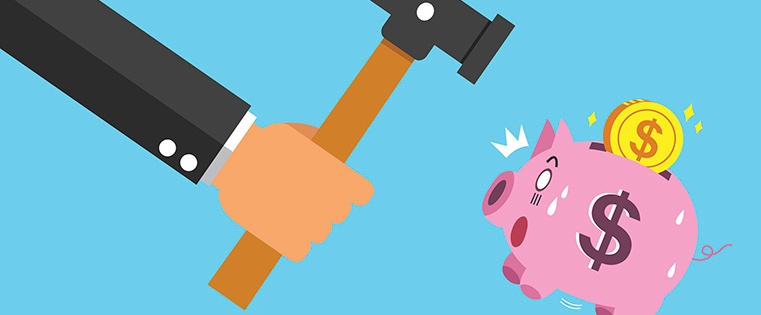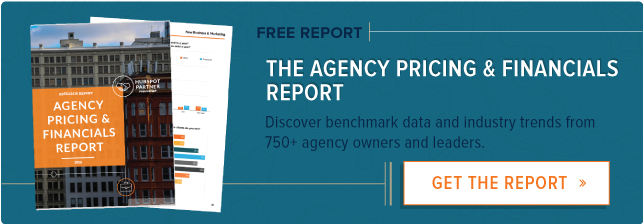
Have you ever given your order at a fast food drive-through, only to be asked, "Would you like fries with that?"
This is a classic example of upselling -- a sales technique used to sell additional goods or services to existing customers.
Among agencies and freelancers, upselling can seem tricky. According to the 2016 Agency Pricing & Financials Report, a staggering 51% of agencies don't have a plan in place for upselling and retention. That means more than half of agencies are missing out on the opportunity to generate more revenue from existing accounts, increase client retention, and build deeper, lasting relationships. 
Sleazy sales reps will try to upsell everyone and anyone -- regardless of whether or not the client actually needs the additional service -- but when you focus primarily on your client's experience and goals, upselling benefits both agencies and clients tremendously.
Check out eight strategies below to help get you started.
8 Strategies For Upselling Your Clients
1) Take the time to understand what success means to them.
Before you can attempt to sell additional value to your client, you need to have a firm grasp on what kind of success is important to them. Early in your relationship, you should set aside time to sit down and discuss what your client wants to gain from working with you. Explore not only the immediate needs of the project at hand, but also the client's larger, long-term plans.
Cultivating a deep understanding of your client's priorities is important for building trust right from the start. If you know what your client values and where she wants to go, then you can identify areas where your agency can offer additional services down the line.
2) Set and track measurable goals.
At the outset of your first project with a new client, make sure you agree upon clear, measurable indicators of success. Leverage what you've already learned about your client's priorities and goals, and develop an action plan with straightforward milestones to keep track of your progress.
To identify a need for additional services later in the client's lifecycle, you need a way to recognize areas where the current plan is falling short, or places where she could afford to beef up her resources for a better outcome. This is where careful tracking becomes essential.
If you tell a client that she needs to devote more to her social media spend, you'd better have the data to back it up. In terms of upselling, having data to point to will bulk up your argument, and help demonstrate to the client that you have her best interest in mind.
3) Identify clients with a real need for additional services.
Not every client is a good fit for an upsell, and you should never, ever try to push additional services on a client who doesn't truly need them. As a general rule, if you can't explain how the additional spend will benefit the client's overall goals, then it's not an upsell worth pursuing.
For example, if you're considering pitching your client on additional email marketing services, but email marketing doesn't fit directly into her long-term plan to expand her reach, you shouldn't force it. If you try to sell services that have a slim chance of delivering a positive outcome to the client, you risk causing major damage to the relationship and potentially losing her business altogether.
Instead, focus your upselling efforts on clients with an evident gap in their current plan. If a client wants to increase her reach, but you don't think she's going about it the right way, there's probably an opportunity to sell her on a new plan.
4) Start providing value as soon as possible with quick wins.
Nobody is going to invest additional resources in your agency until you've proven that you can deliver tangible results for their business. To set yourself up for a long and mutually beneficial relationship with a client, you should focus on providing quick wins as soon as possible.
A quick win project is anything that delivers immediate value to a client. Some examples could be an audit of a client's existing content strategy, an evaluation of a client's website to identify new opportunities, or even a content offer and simple promotional plan.
A quick win project doesn't have to be a big production for your team, it just has to demonstrate that you're fully committed to bringing real returns to your client right from day one. The sooner you can show your client measurable success, the sooner you can deepen the relationship and prove your agency's expertise in additional areas.
5) Pitch ideas -- not just upgrades.
Your clients need to fully understand why you think an additional service or project is a good idea. If you approach her and say, "I think you need to spend more on social media," she might get the wrong idea and jump to the conclusion that you're just trying to line your own pockets.
Always pitch a new service upgrade in the context of an idea. If you see an opportunity to help a client increase her leads from email marketing, your team should come up with a real plan to help her get there. Don't just tell her that she needs to spend more -- give her an easily understood plan to see where her money will be spent and how it will contribute to the overall success of her business.
6) Time upsells with project milestones.
Finding the perfect way to approach a client about additional services and projects can be tricky, but it's really all about the timing. After the completion of a successful project or a big milestone (e.g., reaching a new lead goal), take the chance to step back and ask your client, "What's next?"
Conversations about the future offer a natural opportunity to bring up new ideas and projects you want to accomplish with your client. Pitching an upsell is especially effective after enabling a big win for your client, since she has definitive proof of your expertise and will be more open to committing to future projects with you.
7) Provide a transparent pricing breakdown.
Put yourself in your client's shoes for a moment: If someone said you needed to start paying them more money for vaguely defined additional services, you probably wouldn't bite. In fact, you would probably feel like they were trying to take advantage of you.
How you price your services shouldn't be a mystery to your clients. When you're negotiating an upsell, it's especially important to provide transparent pricing information. Make sure you give your client a complete breakdown of the new project and thoroughly explain what exactly her money is going to support. If a client knows where her hard-earned resources are going, she'll feel more comfortable about investing in a long-term partnership with your agency.
8) Identify trends and apply to your sales process.
Once you've successfully upsold a few clients, you'll begin to develop a better idea of what types of clients benefit the most from additional services. Keep track of the traits these clients have in common, and incorporate trends into your sales process to proactively identify upselling opportunities on an ongoing basis.

No comments:
Post a Comment